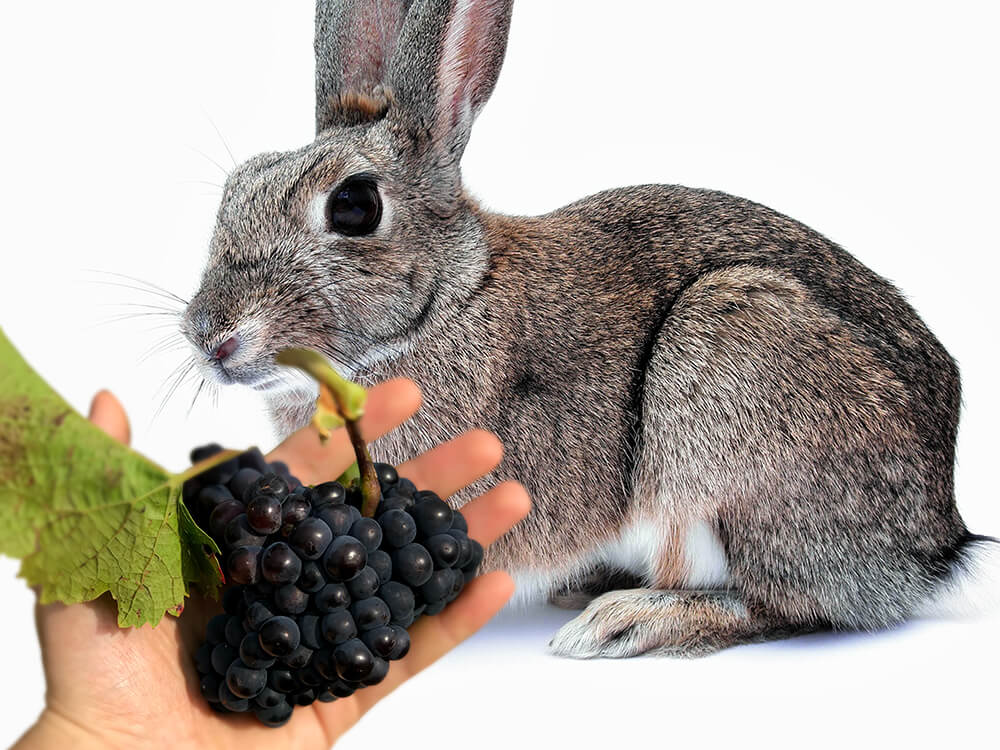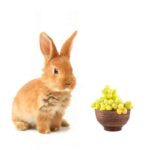Rabbits are delightful pets known for their playful nature and dietary preferences. As herbivores, their diet primarily consists of hay, fresh vegetables, and a small number of fruits. Among the fruits, grapes often come into question due to their sweetness and appeal. Can rabbits eat grapes? Let’s explore this topic in detail to ensure the health and well-being of your furry friend.
Can Rabbits Eat Grapes?

Nutritional Value of Grapes
Grapes are rich in vitamins and minerals, including vitamins C and K, copper, and potassium. They also contain antioxidants, which are beneficial for overall health. However, their high sugar content can be a concern for small animals like rabbits.
- Vitamin C: Supports the immune system and overall health.
- Vitamin K: Essential for proper blood clotting.
- Copper: Important for red blood cell production and maintaining nerve cells.
- Potassium: Helps in maintaining proper muscle function and fluid balance.
Benefits of Grapes for Rabbits
- Hydration: Grapes have a high water content, which can help keep your rabbit hydrated.
- Vitamins and Minerals: The vitamins and minerals in grapes can contribute to your rabbit’s nutritional needs.
- Antioxidants: These help in preventing cell damage and can contribute to overall health.
Risks of Feeding Grapes to Rabbits
Despite the benefits, there are several risks associated with feeding grapes to rabbits:
- High Sugar Content: The high sugar content in grapes can cause digestive problems and lead to obesity if consumed in excess.
- Pesticides: Grapes often have pesticide residues, which can be harmful to your rabbit. It’s crucial to wash them thoroughly before feeding.
- Seeds: Grape seeds can be a choking hazard and should be removed before offering grapes to your rabbit.
How to Safely Feed Grapes to Rabbits
If you decide to feed grapes to your rabbit, follow these guidelines to ensure their safety:
- Wash Thoroughly: Always wash grapes thoroughly to remove any pesticides or chemicals.
- Remove Seeds: Ensure that all seeds are removed to prevent choking.
- Cut into Small Pieces: Cut grapes into small, manageable pieces to avoid choking and make it easier for your rabbit to eat.
- Moderation: Limit the quantity of grapes to avoid high sugar intake. One or two small pieces per week are sufficient.
Observing Your Rabbit’s Reaction
When introducing any new food to your rabbit’s diet, it’s important to observe their reaction. Watch for signs of digestive distress, such as diarrhea or bloating. If any adverse reactions occur, discontinue feeding grapes immediately and consult a veterinarian.
Overall Diet for Rabbits
A rabbit’s diet should primarily consist of:
- Hay: The cornerstone of a rabbit’s diet, providing essential fiber for digestive health.
- Fresh Vegetables: Leafy greens like romaine lettuce, kale, and spinach.
- Fresh Water: Always ensure your rabbit has access to fresh water.
- Pellets: Commercial rabbit pellets can be given in moderation.
Alternative Treats for Rabbits
While grapes can be given occasionally, there are other healthier treats that you can offer your rabbit:
- Leafy Greens: Romaine lettuce, kale, and spinach are excellent options.
- Herbs: Fresh parsley, cilantro, and basil are nutritious and safe.
- Other Fruits: Apples (without seeds), strawberries, and blueberries can be given in moderation.
The Rabbit Digestive System
Rabbits have a unique digestive system that relies heavily on fiber. Their intestines are designed to process large amounts of fiber from hay and vegetables. High-sugar foods can disrupt this balance, leading to issues like gastrointestinal stasis, where the digestive system slows down or stops. This condition can be life-threatening and requires immediate veterinary attention.
Monitoring and Adjusting Diet
Regularly monitor your rabbit’s weight and overall health. If you notice any changes in their eating habits, droppings, or behavior, it might be related to their diet. Consult with a veterinarian to adjust their diet as needed.
Seasonal and Occasional Treats
Consider the season when offering treats. Fresh, seasonal fruits and vegetables can be a delightful and nutritious addition to your rabbit’s diet. However, always introduce new foods gradually and in small amounts to avoid upsetting their digestive system.
Bottom Line
While rabbits can eat grapes, they should only be given in small quantities due to their high sugar content. Always wash the grapes, remove any seeds, and cut them into small pieces before offering them to your rabbit. Monitoring your rabbit’s health and dietary habits is crucial to prevent any adverse effects.
FAQ
Can Grapes Cause Diarrhea in Rabbits?
Yes, due to their high sugar content, grapes can cause diarrhea if given in large quantities. Always feed grapes sparingly.
How Many Grapes Can I Give My Rabbit?
Limit the number of grapes to one or two small pieces per week to avoid excessive sugar intake.
Can Baby Rabbits Eat Grapes?
It’s best to avoid giving grapes to baby rabbits. Their digestive systems are more sensitive, and they should primarily eat hay, mother’s milk, and a few specific vegetables until they are older.
What Should I Do If My Rabbit Eats Too Many Grapes?
If your rabbit eats too many grapes, monitor them closely for any signs of digestive distress such as diarrhea or bloating. If any adverse symptoms occur, consult your veterinarian immediately.
What Other Fruits Are Safe for Rabbits?
Other safe fruits for rabbits, given in moderation, include apples (without seeds), strawberries, blueberries, and pears. Always introduce new fruits gradually and observe your rabbit for any adverse reactions.
How Should I Store Grapes to Ensure Freshness?
Store grapes in the refrigerator to maintain their freshness. Rinse them thoroughly before feeding them to your rabbit to remove any pesticides or chemicals.

